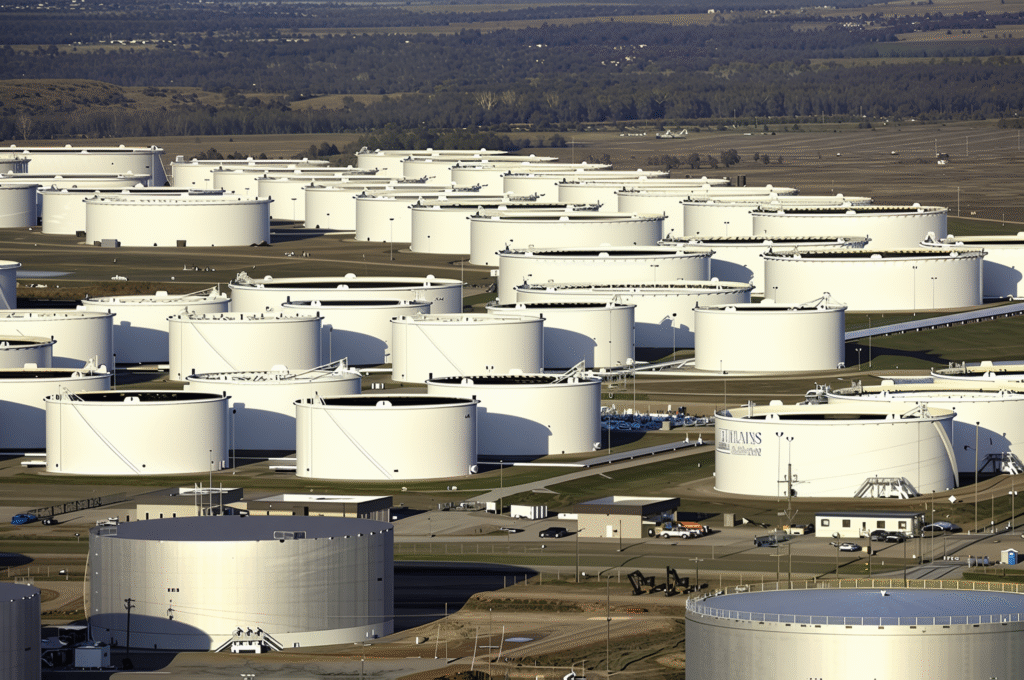Terminal Systems
Our terminals are designed for high-performance storage, transfer, and distribution of petroleum and liquid bulk products. Located at key international ports, each site offers multimodal access including vessel, rail, road, and pipeline ensuring seamless integration with global and regional supply chains. Equipped with advanced safety systems, certified infrastructure, and a skilled operations team, our terminals are built to handle complex logistics reliably, efficiently, and responsibly.
Our Terminal Ports
The Rotterdam Oil Terminal is a cornerstone of Europe’s energy logistics, located within one of the world’s busiest and most advanced ports. Its strategic position enables seamless integration with global shipping routes and inland distribution networks.
TOTAL TANKS
292 Storage Tank Capacity
Vessels
3 deep-sea berths
Annual Throughput
98M t crude /200M t liquid bulk
Engineers
300+ Terminal Workers
Tank Capacities Range
250 m³ – ~6,240 m³
Connected Pipelines
1,500 km regional Network
Located on the Houston Ship Channel, this terminal plays a central role in North America’s crude oil logistics. With access to major pipelines and refineries, it supports large-scale storage, marine transfers, and intermodal connectivity.
TOTAL TANKS
144 Storage Tank Capacity
Vessels
5 deep-water berths + 7 barge berths
Annual Throughput
2 million barrels/day
Engineers
250 Terminal Workers
Tank Capacities Range
1.5 m³ to 63,594 m³
Connected Pipelines
105 to 805KM Regional Networks
Positioned just outside the Strait of Hormuz, the Fujairah Terminal is a key international energy hub. It offers deepwater access, large-scale tank storage, and links to inland crude pipelines. The terminal is optimized for global trade, blending operations, and ship-to-ship transfers.
TOTAL TANKS
36 Storage Tank Capacity
Vessels
14 Wing berths
Annual Throughput
120 million tonnes at port-level
Engineers
250+ Terminal Workers
Tank Capacities Range
650 m³ to 90,000 m³ per tank
Connected Pipelines
360 km, 1.5 M bbl/day
Situated within Singapore’s Jurong Island energy cluster, this terminal provides clean product storage and pipeline integration with regional petrochemical complexes. It features advanced safety systems and deepwater berths that make it essential for refined product distribution across Asia-Pacific.
TOTAL TANKS
39 Storage Tank Capacity
Vessels
4 berths
Annual Throughput
7 million tonnes/year
Engineers
150+ Terminal Workers
Tank Capacities Range
5,500 – 31,000 m³
Connected Pipelines
2,500 km regional Network
Part of China’s major eastern seaport network, the Qingdao Terminal supports bonded crude storage, long-range pipeline connectivity, and direct access to inland refineries. It serves as a gateway for international oil imports and regional energy logistics.
TOTAL TANKS
17 Storage Tank Capacity
Vessels
17 tanker berths
Annual Throughput
15.4 million tonnes/year
Engineers
100+ Terminal Workers
Tank Capacities Range
Approx 61,000 m³/tank
Connected Pipelines
312 km total inbound/outbound

Strategically Positioned
Our Terminals is strategically positioned with seamless access to major sea, road, and pipeline networks, ensuring smooth and efficient transportation of stored products. The port facilitates direct connectivity to global shipping routes, allowing for the swift import and export of petroleum and chemical products.
Our advanced product handling capabilities include secure bulk liquid storage, tank-to-tank transfers, and efficient vessel loading/unloading for both large and small-scale shipments. The terminal is integrated with pipeline connections for direct product movement to refineries, distribution centers, and industrial clients.
With 24/7 operations, real-time inventory tracking, and strict safety and quality control measures, we ensure the reliable and secure handling of all stored products. Our commitment to efficiency, safety, and sustainability makes our terminal ports a key hub for energy and chemical logistics.

